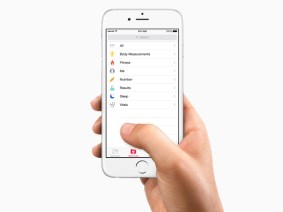In a groundbreaking development, Max Little has successfully incorporated a Parkinson’s app into the iPhone through the utilization of Apple ResearchKit. This innovative integration has empowered individuals affected by Parkinson’s disease to actively participate in research studies and contribute valuable data for scientific advancements. By harnessing the power of technology and leveraging the capabilities of smartphones, Little has revolutionized the field of Parkinson’s research.
A New Era in Patient Engagement
The integration of Apple ResearchKit into the iPhone has ushered in a new era in patient engagement within medical research. Through this pioneering approach, individuals with Parkinson’s disease can conveniently participate in studies from their own homes, eliminating geographical barriers and reducing logistical challenges associated with traditional clinical trials. By simply downloading an app on their iPhones, patients can now actively contribute to scientific knowledge without disrupting their daily routines or compromising their comfort.
Unleashing Big Data Potential
By tapping into the vast potential offered by smartphones and wearable devices, Max Little has unlocked unprecedented opportunities for collecting big data related to Parkinson’s disease. With millions of people worldwide using iPhones as part of their everyday lives, researchers now have access to an extensive pool of participants who can provide real-time health information effortlessly. This wealth of data enables scientists to gain deeper insights into various aspects of Parkinson’s disease progression and develop more personalized treatment approaches based on individual characteristics.
Promoting Collaborative Research Efforts
The incorporation of Apple ResearchKit not only empowers individual patients but also fosters collaborative efforts among researchers globally. By creating an open-source platform that allows for easy sharing and analysis of collected data, Max Little encourages collaboration between different institutions and facilitates interdisciplinary research collaborations aimed at unraveling complex aspects surrounding Parkinson’s disease etiology, symptomatology, and treatment. This collaborative approach accelerates the pace of scientific discovery and enhances our understanding of this debilitating neurological disorder.
Conclusion
The integration of Apple ResearchKit into the iPhone by Max Little has revolutionized Parkinson’s research by enabling widespread patient engagement, harnessing big data potential, and promoting global collaboration among researchers. This groundbreaking development marks a significant milestone in the quest to better understand Parkinson’s disease and develop more effective treatments. As technology continues to advance, it is crucial that we embrace such innovative approaches to drive progress in medical research and improve the lives of individuals affected by neurological disorders.

